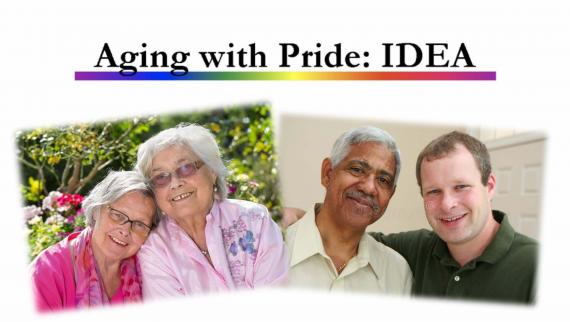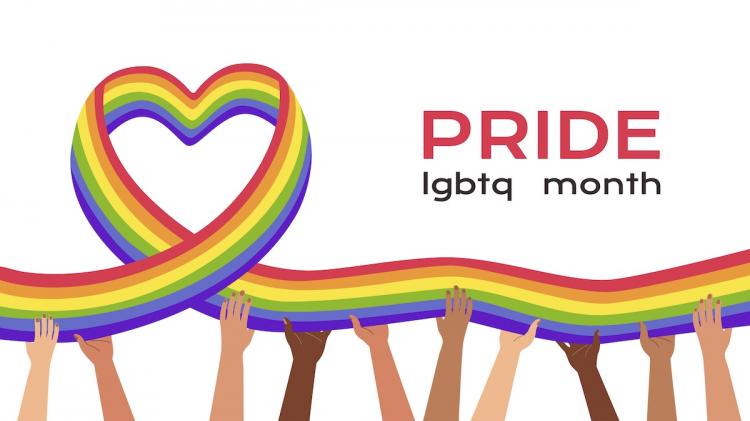By Jo Bechtold, MSW, MBWC Social Work Intern (Alumna)
Older LGBTQ (Lesbian, Gay, Bisexual, Trans, Queer) folks have faced lifelong discrimination, which ultimately leads to health disparities in these communities. They may be hesitant to seek out healthcare and receive less comprehensive care when they do. They are also more likely to experience social isolation because of strained relationships with parents and siblings because of their sexual and/or gender identities and are less likely to have children of their own. For folks living with dementia, social isolation can contribute to significant cognitive decline. LGBTQ folks living with dementia are at even higher risk for experiencing social isolation because of the compounding stigma surrounding both their sexual orientation and gender identity and their dementia diagnosis.
“LGBTQ older adults are vastly underserved in most aging services and resources,” says Karen I. Fredricksen-Goldsen, professor of Social Work at the University of Washington and internationally recognized aging disparities scholar, who leads the Aging with Pride Study. “Invisibility combined with encountering biases from care providers are some of the common barriers they face.” By raising awareness about the unique issues this community faces and increasing cultural competency in health care, providers can increase the quality of life of queer folks experiencing memory loss. LGBTQ folks deserve recognition, respect, and care tailored to their needs.

Learn more about Aging with Pride: IDEA (Innovations in Dementia Empowerment and Action)
LGBTQ adults are more likely to experience poverty than their heterosexual counterparts. They may have faced discrimination based on their identity in the formal workplace, hindering their ability to receive or hold a job. If the government does not recognize their work, their safety net shrinks: they may not be able to qualify for unemployment or pay into social security. This exclusion leads to less accrued wealth over time and less retirement savings. With less income, folks’ quality of life may be affected. They may be unable to afford to visit family or friends or participate in hobbies and activities they enjoy. Queers with lower incomes may be unable to pay for the aging care they require to stay in their homes. Older members of the LGBTQ community may be hesitant to move into elder care facilities, fearful of discrimination by both other clients and staff. They may feel pressure to re-enter ‘the closet’ or hide their gender identity. Many queer folks have made their homes into safe spaces and a refuge from the rest of the world. Having to leave their homes at the end of their lives can be a great point of stress for folks of all identities, especially those within the LGBTQ community.
Another common barrier older queer folks face is social isolation. Queer couples often experience discrimination when looking to adopt or foster children. In addition, in vitro fertilization (IVF) is unlikely to be covered by medical insurance. Because of both the high cost of IVF and adoption fees, many LGBT couples find it difficult to create a nuclear family. In addition, queer folks disproportionally lose contact with their family of origin after rejection from their parents or siblings based on their sexual or gender identity. A key factor of resilience of queer communities is the ability to create “chosen families”, or formations of close friends and community members that act as traditional families. However, queer folks are less likely to experience intergenerational friendships than straight people, making it difficult for chosen families to take care of another as their group collectively ages. All of these factors contribute to LGBT people’s likelihood to experience social isolation as they age. Social connection with other people has been proven to reduce the onset of depression and cognitive decline, two potential risk factors for folks experiencing dementia.
Furthermore, queer people are less likely to pursue medical care than heterosexuals because of the discrimination they experience when receiving care. According to Shabab Ahmed Mirza and Caitlin Rooney for American Progress, 22% of transgender people postpone medical treatment out of fear of disrespect or discrimination. The same study found that alternative healthcare providers may also be difficult to find because of medical staff shortages, especially in rural areas or specialized medical care, such as dementia services.
In addition, the mainstream culture has historically depicted queer folks as young, white, and affluent gay men. Older folks who do not hold these identities, including those with memory loss, have lived at risk of being made invisible and underserved in the medical system. We can reach these communities on the margins through cultural competency trainings for medical providers that address the unique issues queer folks experience as they age and how to best serve them. By providing visual cues of allyship, such as depictions of rainbows or posters stating the clinic is LGBTQ affirming, medical providers can foster a sense of safety and respect for their queer clients. LGBT folks with a dementia diagnosis may feel ashamed of both their medical diagnosis and sexual or gender identity, further rendering them invisible. However, they are a valued part of our community and deserve to be celebrated and honored.
Happy Pride Month!





